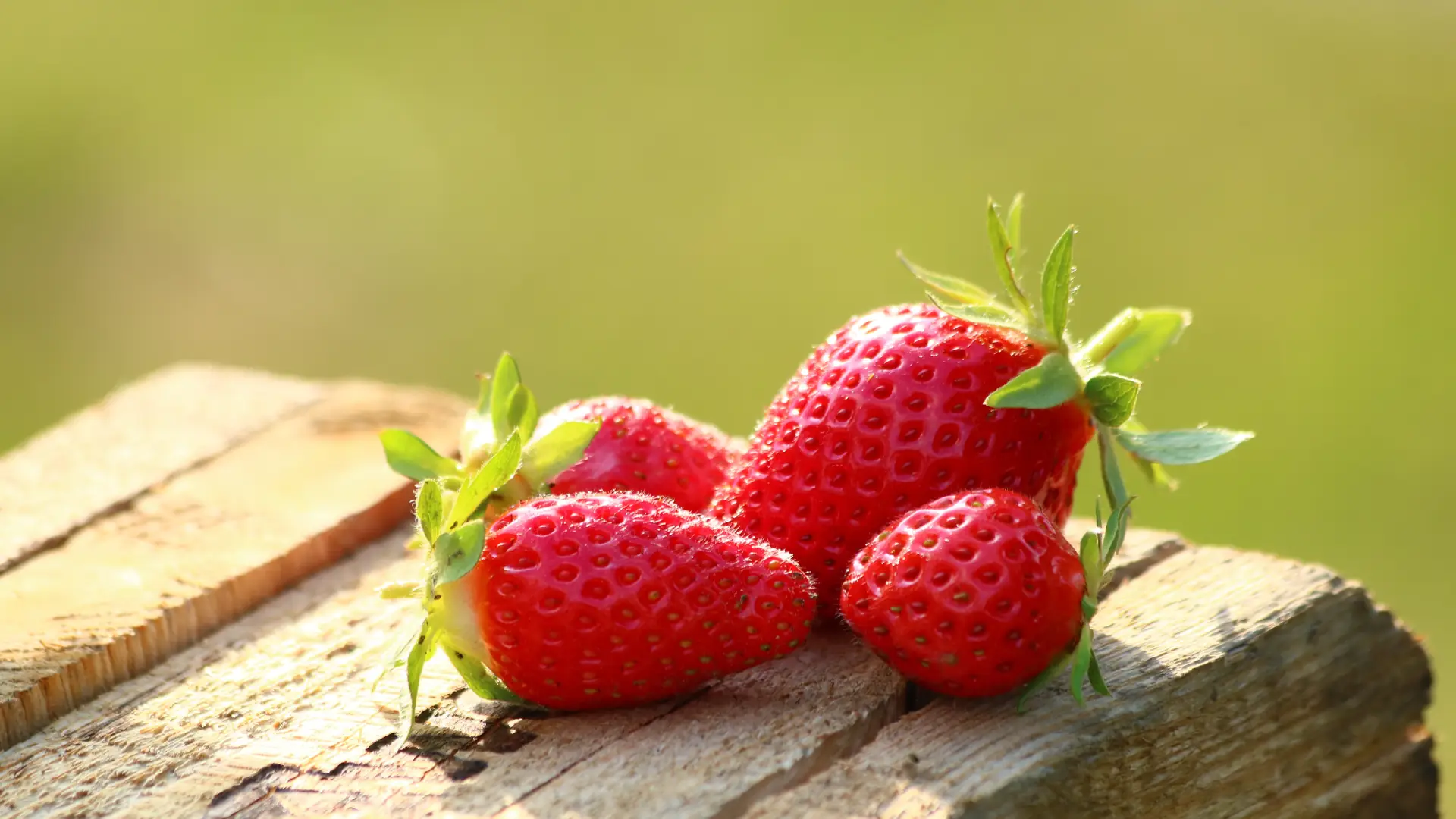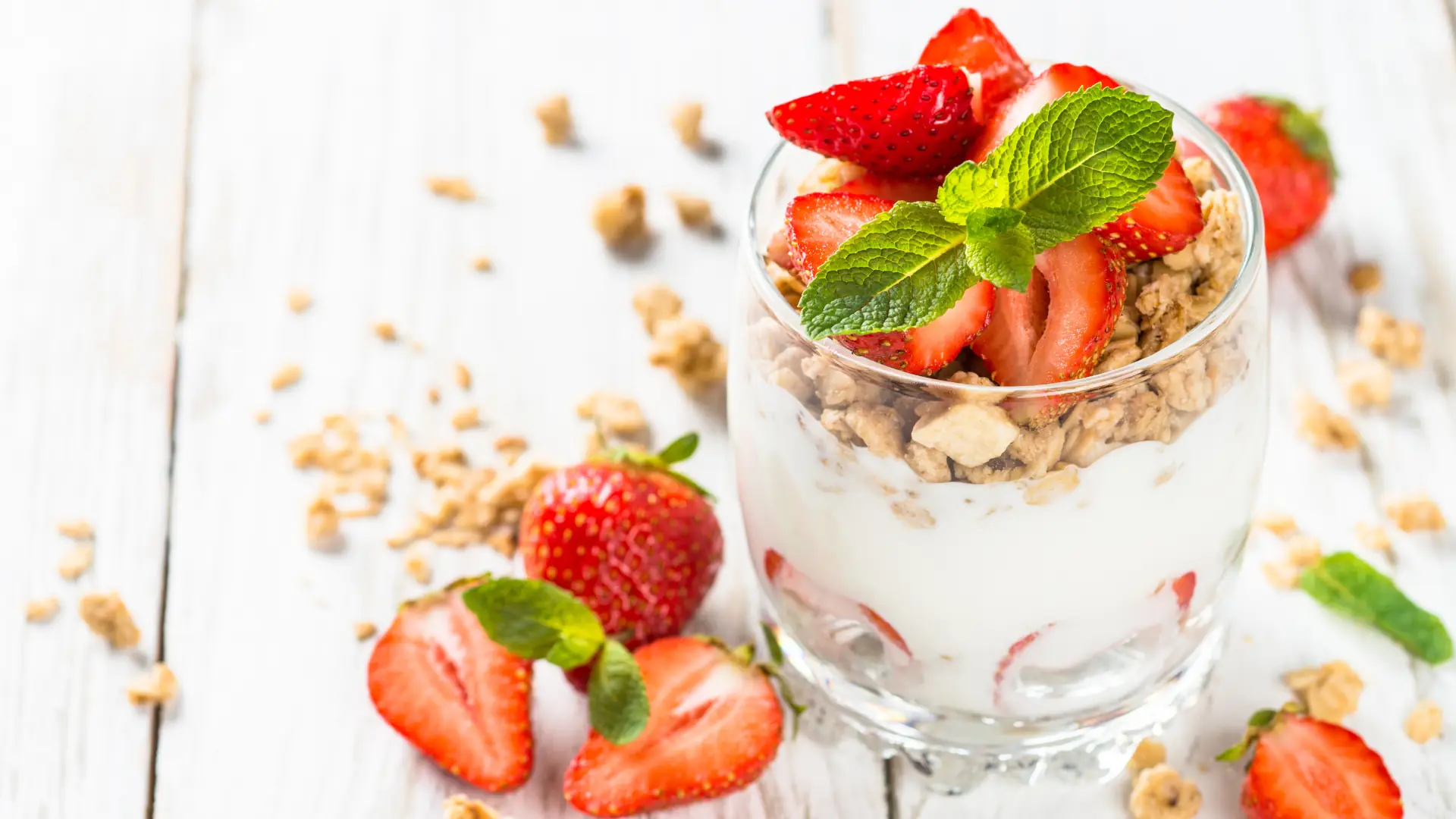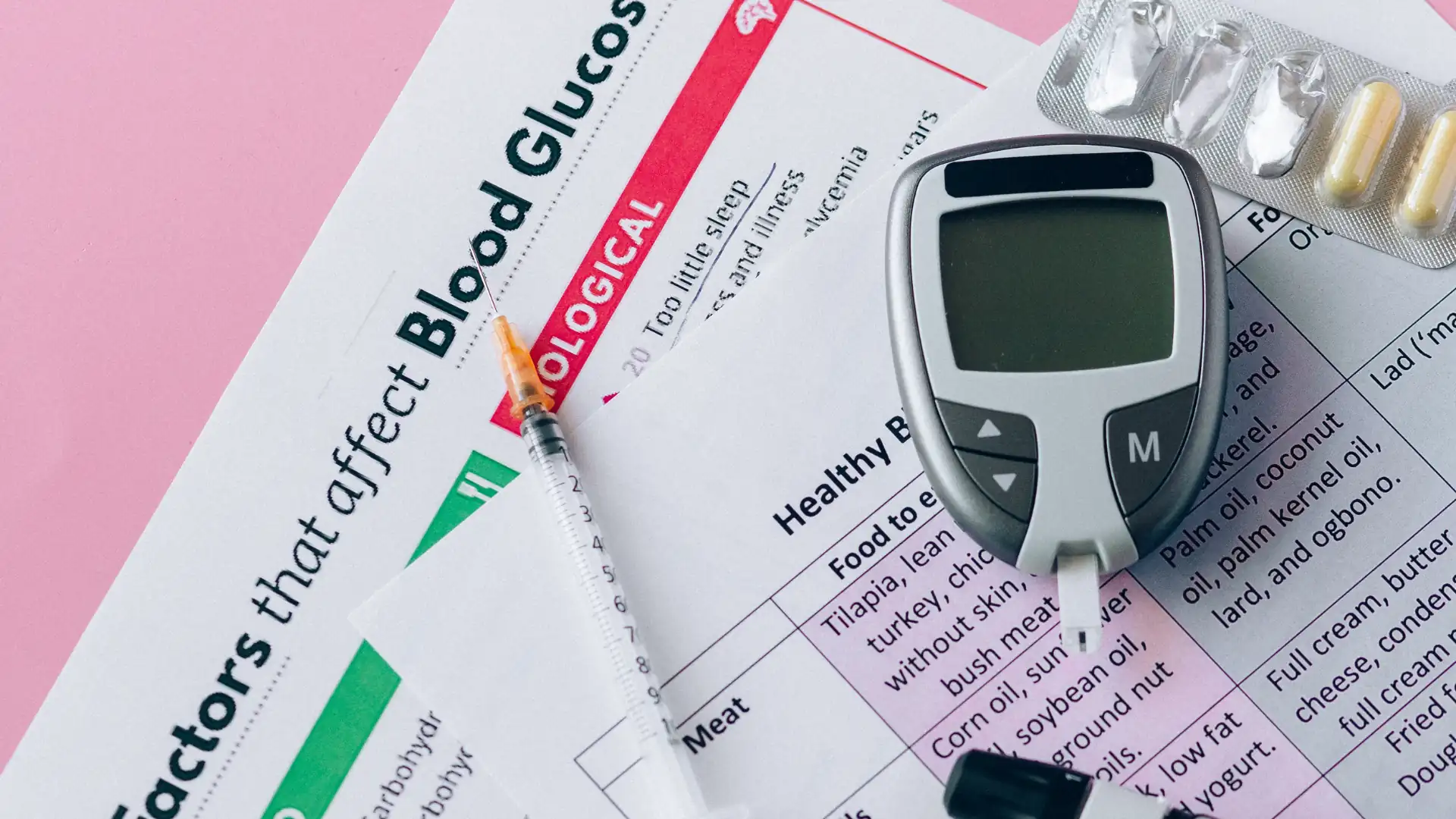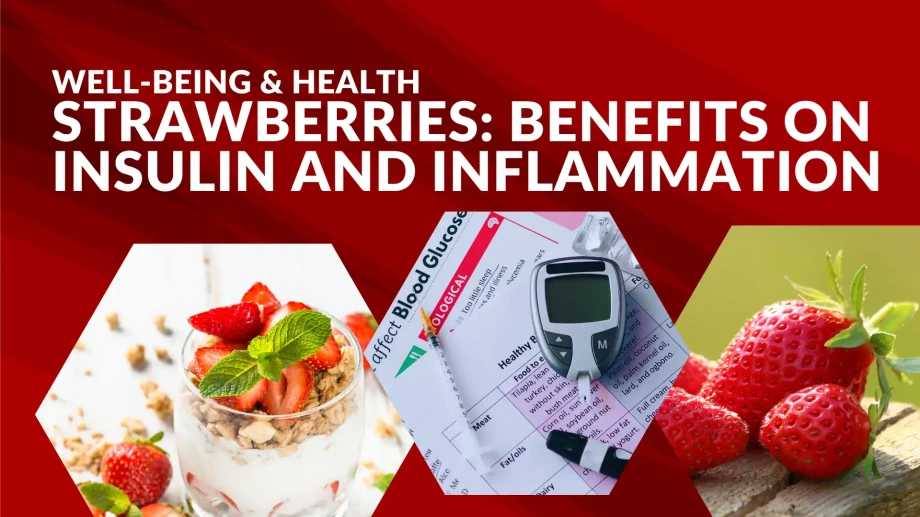Modern diets, often rich in refined carbohydrates and fats, can trigger inflammatory responses and changes in insulin sensitivity after meals.
These conditions are considered significant risk factors for chronic diseases such as cardiovascular disease, obesity, and type 2 diabetes.
It is in this context that berries, and particularly strawberries, emerge as key players, offering potential support for metabolic health.
The antioxidant power of berries
Strawberries are recognized for their remarkable antioxidant capacity, not only due to their polyphenol content but also thanks to the presence of vitamin C and glutathione.
These berries contain a variety of polyphenolic compounds, including anthocyanins (which give them their characteristic red color), flavonols, flavanols, and ellagitannins.
In particular, the study highlights that pelargonidin-3-O-glucoside is the most abundant anthocyanin in strawberries, contributing to 54% of the total anthocyanin content.
Although the bioavailability of these compounds in plasma may appear relatively low, they are known to influence inflammatory enzyme activity and cell receptor sensitivity.

Strawberries and the Postprandial Response
Research conducted on overweight adults explored the effect of a strawberry extract in beverage form consumed along with a high-carbohydrate, moderate-fat meal (HCFM).
The aim was to assess how this strawberry-based beverage could modulate inflammatory and insulin responses after the meal.
Participants consumed the meal accompanied by either a strawberry beverage or a placebo beverage in a crossover study.
The strawberry beverage contained 10 grams of freeze-dried strawberry powder, equivalent to about 100 grams of fresh strawberries.

Key benefits
The results of the study are significant and indicate favorable effects of strawberries on postprandial responses. It was observed that:
- Consumption of the strawberry beverage significantly reduced the post-meal inflammatory response, as measured by markers such as high-sensitivity C-reactive protein (hs-CRP) and interleukin-6 (IL-6). IL-6, in particular, was significantly lower with the strawberry beverage.
- The strawberry beverage was also associated with a reduction in the insulin response after the meal. This suggests improved insulin efficiency, meaning the body may have required less insulin to manage glucose levels.
- No significant differences were observed in plasma glucose levels between the two treatments.
- Plasma concentrations of anthocyanins, particularly pelargonidin sulfate and pelargonidin-3-O-glucoside, increased significantly after consumption of the strawberry beverage.
These data reinforce the idea that the consumption of berries like strawberries can positively influence metabolic processes related to inflammation and insulin management.
Beyond the plate
It should be noted that, although some polyphenolic compounds in strawberries may undergo a reduction in concentration when formulated in milk-based beverages, potentially due to interactions with milk proteins, the study still demonstrated significant biological changes.
This indicates that even with such interactions, the observed benefits remain evident.
The ability of anthocyanins to be detected in plasma in their native structure or as metabolites (such as glucuronides, methylated, and sulfated forms) highlights their biological activity in the body.

Strawberries and long-term health
The results of this research highlight the tangible benefits derived from consuming berries high in phenolic content, such as strawberries, in counteracting the inflammatory response and improving insulin action after a meal.
At a time when increasing attention is paid to prevention and maintaining health through diet, the regular inclusion of berries in the diet can represent an effective strategy.
These foods are not only delicious but also valuable allies in building a lifestyle focused on well-being, helping to modulate metabolic processes crucial for long-term health.
Source: Edirisinghe I, Banaszewski K, Cappozzo J, et al. Strawberry anthocyanin and its association with postprandial inflammation and insulin. British Journal of Nutrition. 2011;106(6):913-922. doi:10.1017/S0007114511001176
🫐 Well-being & Health with Berries 🍓This article is part of the editorial series Wellness & Health with Berries, which brings scientific research closer to everyday life, promoting berries as allies for well-being. The series offers clear, up-to-date, and evidence-based content designed to inform consumers and support all operators in the berry supply chain. |








